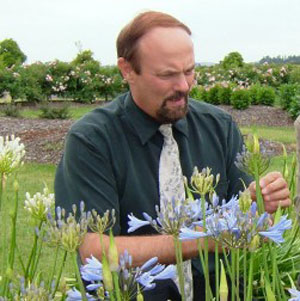Horticultural Consultant
Tasks & duties

Horticultural consultants may do some or all of the following:
-
examine crops and give advice on growing methods and problems such as pests and diseases
-
provide business management advice and documentation, including site and crop-productivity reports, budgets, and plans for purchasing and developing properties
-
provide training by giving talks, running courses and designing and operating web-based industry information pages
-
keep up to date with the latest developments in growing and horticulture by reading magazines, books and Internet articles and attending field days and seminars
-
co-ordinate and advise on research projects for organisations and growers' authorities
-
recruit and supervise staff and/or contractors on behalf of clients
-
provide damage assessment services for insurance companies after natural disasters like floods, hail and droughts
-
advise local and central government organisations on crop performance, costs of production and how to cope with natural disasters
Specialisations
Horticultural consultants may specialise in a particular area such as:
-
crop management of a particular fruit or vegetable
-
irrigation
-
financial management
Skills & knowledge
Horticultural consultants need to have:
-
knowledge of the area of horticulture they are involved in
-
practical horticulture skills
-
knowledge of plant pests and diseases, and how these can be managed
-
an understanding of finance, basic accounting and business management
-
up-to-date knowledge of developments in horticulture
-
research skills
-
good communication skills, incuding writing and computer skills
-
good planning and organisational skills
Entry requirements
To become a horticultural consultant you need relevant practical experience and a Bachelor's degree in horticulture – unless your experience is extensive.
Secondary education
A tertiary entrance qualification is required to enter tertiary training. Useful school subjects include chemistry, biology, physics, horticulture, maths and English.
Tertiary education
Consultants may choose to do postgraduate study in their specialist area.
Training on the job
Many skills are learned on the job. Horticultural consultants attend field days, discussion groups, lectures, conferences and university short courses, and read current horticulture research and publications, to keep up to date with developments and changes in practice.
Certificates for spraying specified pesticides and other agrichemicals
-
You need a Growsafe certificate, or similar qualification, for spraying or conducting field trials with sprays.
-
An Approved Handler certificate is necessary for handling some pesticides, and supervising other workers who are spraying.
-
If you are spraying on other people's property, you need to have a Registered Chemical Applicator certificate.
Useful experience
Useful experience for horticultural consultants includes work in:
-
orchards, vegetable production or plant nurseries
-
sales, marketing or other jobs involving contact with people
-
a horticultural research laboratory
Related courses
Crop Production
Horticulture
For more information, please refer to Career Services.
Document Actions
